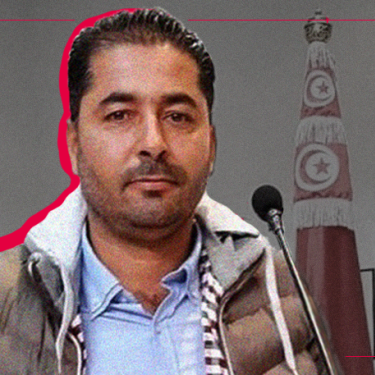Tunisia must stop persecuting reporter for refusing to reveal sources

Reporters Without Borders (RSF) calls for the immediate release of Khelifa Gasmi, a Tunisian journalist who has just been arrested on a warrant issued in May, when he was sentenced to five years in prison for refusing to reveal his sources for a story about a terrorist cell. The authorities must stop persecuting this journalist over his reporting, RSF says.
A reporter for privately-owned radio Mosaïque FM, Khelifa Gasmi had been living in semi-clandestinity in his hometown, Kairouan, 150 km southwest of the capital, Tunis, ever since receiving the five-year sentence on 16 May. Arrested by police in Kairouan on 3 September, he was brought the next day before an appeal court judge in the capital, Tunis, who ordered his detention.
Gasmi is convicted of violating provisions of Tunisia’s terrorism law and penal code by “divulging information” in a story about the dismantling of a terrorist cell in Kairouan, published on the Mosaïque FM website in March 2022. After his lawyers demonstrated the spurious nature of this charge, it was clear that the authorities were persecuting him simply for refusing to reveal his sources.
“Protecting sources is fundamental in journalism. It is intolerable that this journalist is being persecuted for doing this. The Tunisian authorities must stop using such methods to muzzle reporters, which recall the terrible times of the dictatorship and authoritarianism. What happens next is crucial. The Court of Cassation must agree to consider the appeal by Khelifa Gasmi, the only journalist currently detained in Tunisia, so that all the charges against him can be quickly quashed.
Aged 48, Gasmi worked for the daily newspaper Chourouk and the TV channels Attessia TV andCarthage+ before joining Mosaïque FM. He has always distinguished himself by the quality of his investigative reporting on societal and security issues.
A lower court originally sentenced Gasmi to a year in prison without ordering his detention. But a Tunis appeal court increased his sentence to five years in prison. He is now waiting to see whether the Court of Cassation, Tunisia’s highest appeal court, will agree to examine the case.
